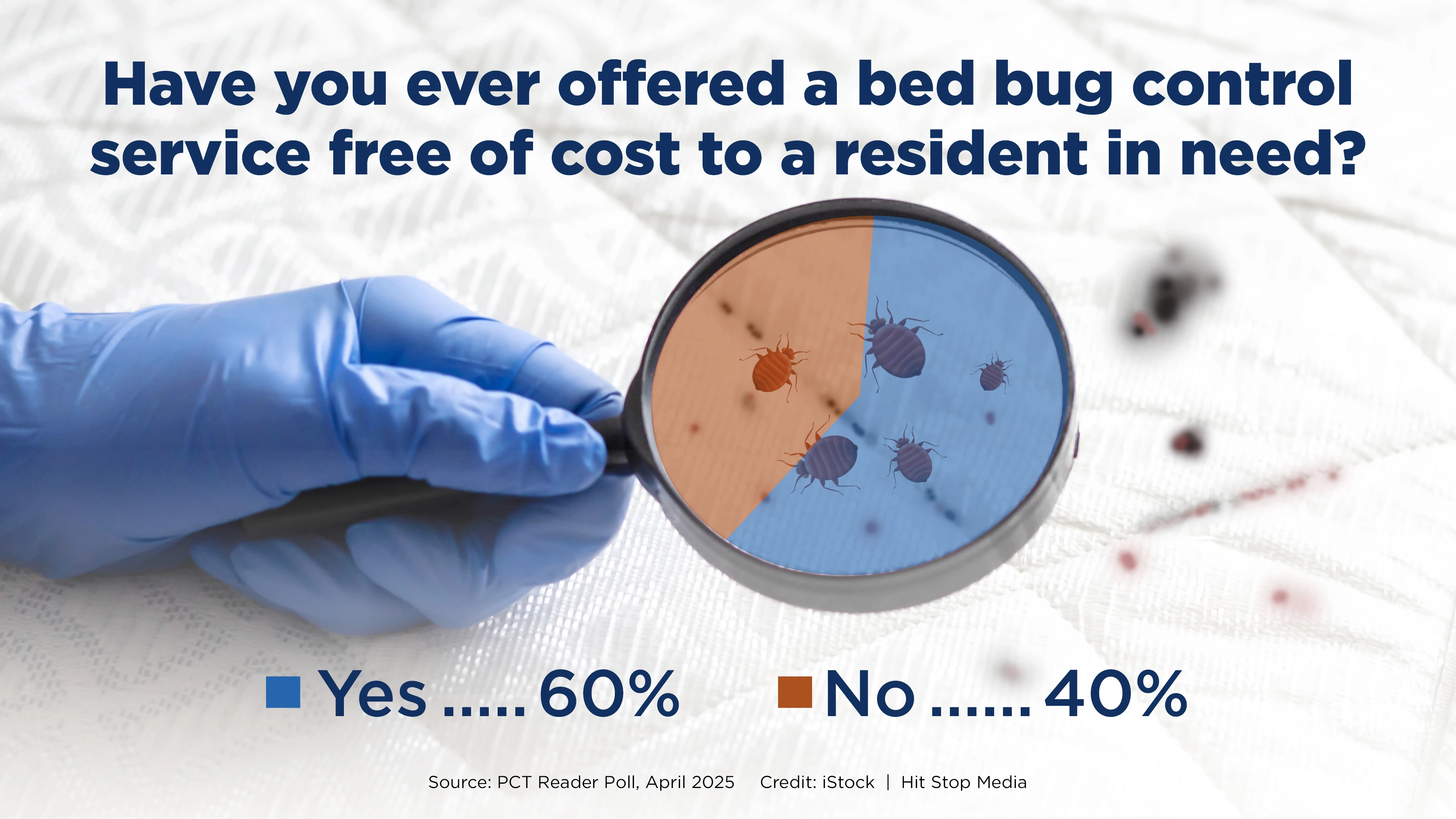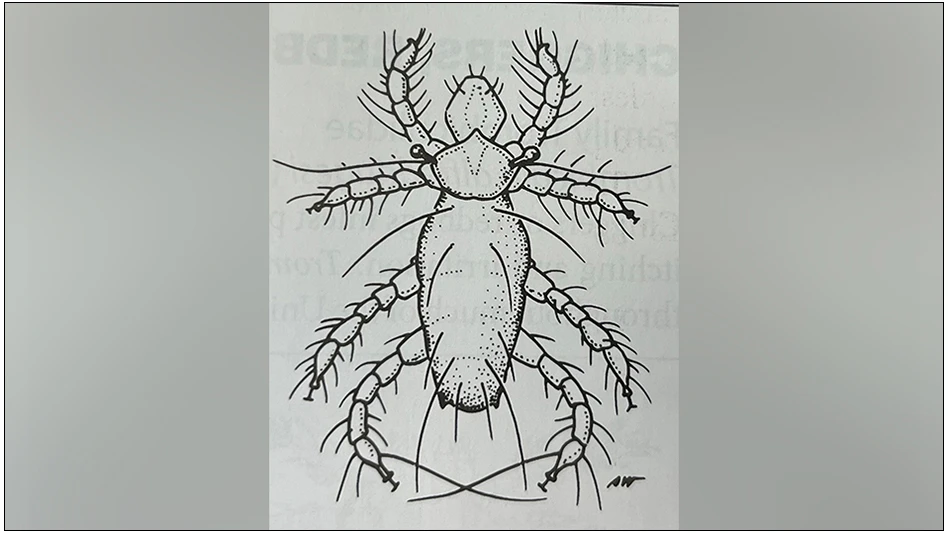Outdoor kitchen: check. Hot tub: check. Fireplace, pool, furniture: check, check, check. Mosquitoes: You betcha. Despite accessories for outdoor living, mosquitoes are ruining home-owners’ summer fun — and investment. To the rescue: PCOs, many of whom are discovering control of these pests a profitable niche market.
Customers who “spend a lot of money on their backyard and find they can’t sit on their deck or be around their pool because mosquitoes are biting them” are swarming for the service, said Donnie Blake, president of Louisville, Ky.-based OPC Pest Control.
Many PCOs have seen double-digit growth in mosquito control during the past five years, with retention rates of more than 90 percent. “Most of our customers who get on these types of programs stick with them,” said Mike Rottler, president of St. Louis-based Rottler Pest & Lawn Solutions. He projects mosquito control revenues of $150,000 this year. “It’s not a huge part of our business, but it’s good margins.”
CONTROL OPTIONS. Pest management professionals generally perform barrier treatments or install misting systems to control mosquitoes. Both rely on thorough inspections of harborage spots, an analysis of surrounding properties and customer yard use, and correction of drainage and standing water problems.
For barrier treatments, technicians use mister blowers to apply a high-residual liquid pyrethroid to foliage, decks and other mosquito resting areas every month to 45 days. The backpack technology has decreased the amount of product applied without hindering effectiveness, said Jeff Johnson, vice president of operations, A-Active Termite & Pest Control Company, Virginia Beach, Va. “Before, on a nice-sized lawn with a lot of foliage, it was very possible that we could use 25 to maybe 45 gallons of product (using spray rigs). Now we can do that same job with two to three gallons and still gain the same control.” Mister blowers, he explained, break pyrethroid concentrate into finer particles and the forced air helps target the underside of foliage. Drift, however, is a greater possibility with the backpack systems, he said.
Misting systems feature a timer, 55-gallon drum of diluted water-based pyrethrum, and nozzles placed every 10 to 15 feet in the foliage of a yard’s perimeter. Designed for contact kill, these type of systems are activated by handheld remote or programmed to mist at intervals. Technicians can refill tanks, check for leaks and adjust nozzles during regular quarterly service calls.
Bacillus thuringiensis and granular insect growth regulators are applied as needed in both programs.
Liquid botanicals also are getting attention. A-Active recently used one to treat a country club’s gardens prior to an annual outdoor meeting. “People commented (on the lack of mosquitoes),” Johnson said. “They couldn’t believe it compared to last year when they’d just about gotten carried away.” Botanicals reduce drift concerns and fit the industry’s growing “green” approach, he said.
Callbacks are rare with both programs, PCOs contacted by PCT agreed. They use either dedicated mosquito control teams or train all technicians to perform the services.
TAKING BACK THE YARD. PCOs use direct mail, billboards, the Internet, Yellow Pages, radio and TV ads to encourage homeowners to take back their yards from mosquitoes. Mention of West Nile virus is generally avoided. “That is what brought mosquito control to the forefront, but we don’t focus on that,” Blake said.
“It’s all about being able to use your backyard,” said Bobby Jenkins, president of ABC Pest & Lawn Services, Austin, Texas.
Word-of-mouth is particularly effective with this service, Jenkins added. “We all know that word of mouth is the most powerful marketing tool, but with this, it’s even more so because people love to brag that, ‘Now I can use my backyard.’”
Direct selling to existing customers also pays off. “We’re finding a large percentage of the people will take the mosquito (control) if they take one of the other (service) options,” Blake said. Rottler technicians wear “Ask me about Mosquito Control” buttons and leave behind estimates with customers. “When (customers) buy multiple services from you, you have an even higher retention rate,” Rottler said.
PRICE NO DETERRENT. Customers don’t seem deterred by price, which averages 25 to 30 percent more than conventional pest control, Johnson said. Barrier treatments can run from $50 to $400 each month, depending on yard size, with time-intensive inspections and consultations sometimes costing more. Okolona Pest Control offers group discounts for subdivisions.
“It’s unreal the number of treatments we can do in the course of a day in a subdivision,” said OPC’s Blake.
Misting systems typically cost $2,000 to $5,000, plus maintenance. “We find people will invest in owning a system that’s an ongoing control measure that allows them to use their backyard whenever they want,” Jenkins said.
OPPORTUNITY BUZZES. Mosquito control is a growing opportunity but it should not be entered casually, PCOs said. Blake said professionals must develop a specific service agreement and consumer disclosure/disclaimer. “You just can’t use your regular pest control contract. You’ve got to outline the expectations of the customer.”
Understand mosquito biology, develop a program that fits your locale, train technicians in synthetic pyrethroids, worker protection, and measures to prevent drift and blowback, and build relationships with area health departments, added Blake, who hosts dual training with the Louisville Metro Health Department.
Choose the right control products, emphasize inspection and Integrated Pest Management over application measures, and get the proper certification, adds Johnson. Some states require public health certification for mosquito control.
The future looks bright for this niche service, Jenkins said. “In the past, our industry never really talked about mosquito control because we really didn’t have one for the urban environment. The more we let (customers) know we have solutions for this, the more the public’s going to want to buy it.” n
The author is a frequent contributor to PCT.
WANT MORE?
Enter your email to receive our newsletters.

Explore the April 2008 Issue
Check out more from this issue and find your next story to read.
Latest from Pest Control Technology
- Target Specialty Products, MGK Partner for Mosquito Webinar
- Cockroach Control and Asthma
- FORSHAW Announces Julie Fogg as Core Account Manager in Georgia, Tennessee
- Envu Introduces Two New Innovations to its Pest Management Portfolio
- Gov. Brian Kemp Proclaimed April as Pest Control Month
- Los Angeles Ranks No. 1 on Terminix's Annual List of Top Mosquito Cities
- Kwik Kill Pest Control's Neerland on PWIPM Involvement, Second-Generation PCO
- NPMA Announces Unlimited Job Postings for Members






